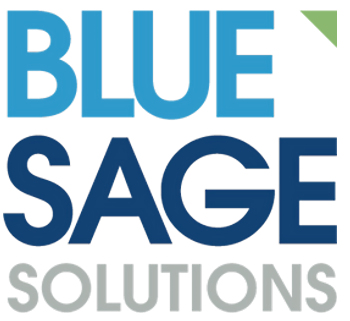Blog

The Times are Changing Before Our Very Eyes
There are ways to remain relevant in the mortgage business that don’t include using a drone.
The home-buying landscape is changing rapidly. The transformation is being led by millennials who are increasingly becoming a driving force in the market.
That means how homes are bought, sold and financed will never be the same. Want a vivid example of what will come? Go to the nearest mall.
Chances are you can find evidence of the “retail apocalypse” near you. Maybe it’s just some store vacancies, or a new housing complex where a shopping center once stood. To some, it’s still pretty shocking.
In fact, more than 12,000 retail stores are expected to close just this year, as a large number of corporate brands have gone bankrupt or have been purchased in leveraged buyouts and downsized. Even giants of American commerce like J.C. Penney, Kmart and Sears have been affected.
By some estimates, half of the 1,200 malls in the U.S. will be gone by 2023. The reality is that a growing number of Americans prefer Amazon over a jaunt to the mall. According to a 2017 survey published by Statista, 40 percent of U.S. internet users bought something online several times per month, and one-fifth bought goods or services weekly.
Every mortgage originator knows that the Internet is changing the way they do business. It already has. And things are just getting started. Will what’s happening to retail cause the same havoc for the mortgage industry? Rest assured; the digital-savvy originator still has a place in this future.
Higher expectations
It’s a safe assumption that any borrower today who contacts a mortgage originator has already done some research about the mortgage process online. They may not know exactly how much they can afford, but they can find out what rates are available and generally what they need to do to apply for a mortgage.
Their expectations are high. They have been conditioned to get what they need, when they need it. That applies to practically everything — groceries, appliances, a plumber, movies and games, Spanish lessons, legal advice, a date, a ride, a car, you name it. Each of these things can be obtained immediately or almost immediately, except — you guessed it — a home or a mortgage.
Of course, most people don’t expect buying a home to be that easy. They do expect it to be a lot easier than it was for their parents, however.
It wasn’t that long ago when only a real estate agent or an appraiser could tell you how much your house was probably worth, because only they had access to local sales data. Today, anyone can get a home value from a dozen different sources in seconds, whether they are serious about refinancing their mortgage or not.
Home buyers empowered
Borrowers can do much more than get a value, too. With the emergence of financial technology, and software-as-a-service programs, home buyers can go quite far into the mortgage process before ever talking to a human being.
They can research and compare loan products, apply for a mortgage and sign their application electronically. They can order their own credit and access their income and assets online. They can even calculate fees, access automated underwriting tools, receive initial disclosures and sign them electronically.
And they can do it all in a matter of minutes.
While it’s true that many homebuyers do not prefer a do-it-yourself, or DIY, mortgage experience like this, they are increasingly outnumbered by those who do. The millennial generation entering the housing market today grew up with no experience of life without the internet, and they are poised to drive home buying for at least the next two decades. Generally speaking, they are not the type to sit by the phone waiting for a mortgage originator to return their call.
Expertise needed
In a DIY mortgage environment, it would seem that mortgage originators have a very dim future ahead. But a closer look reveals that this is not necessarily the case — and, in fact, the originator is just as important as ever.
“Every mortgage originator knows that the internet is changing the way they do business.”
In spite of the growing number of tools and resources consumers have to initiate the mortgage process on their own, and regardless of how simple and easy the process is made to look online, getting a mortgage is still a relatively lengthy, complicated process. Beyond being the most expensive commitment most people will ever take on, a purchase loan or a refinance will have a long-lasting financial impact on the borrower.
There are many different financing options to choose from and significant hurdles that every borrower needs to jump over in order to get a loan. Then there’s the emotional roller coaster ride that almost every borrower goes through.
This means borrowers will still need human mortgage experts to guide them through the process. In fact, even borrowers who choose a digital mortgage experience still expect and ask for professional advice. The key for mortgage originators is to augment the online services consumers expect by making sure they can provide the same level of service offline.
In addition, many borrowers who start the home-buying process online are doing so with their smartphones. Consequently, mortgage originators must have the ability to engage and serve borrowers via mobile devices as well. In fact, it should be a requirement of doing business.
Clients who choose to start the mortgage process online also need immediate help when they get stuck, or else they are likely to throw up their hands and try another lender. Mortgage originators need to be able to know when a borrower is applying for a mortgage as well as the exact moment they run into trouble, so they can intervene to make sure a prospect turns into a client.
Technology fix
For originators to retain a central role in the mortgage process, they need the right technology. And the right technology, in this case, is a platform that is available to and used by everyone involved in creating a mortgage — including the lender, loan officer, underwriter and borrower.
In other words, the technology that originators use to manufacture loans should be the same technology borrowers use to start the mortgage process. It also should be the same technology that the originator uses to connect with and serve borrowers through the mortgage process.
The problem right now is that most mortgage platforms can’t do this. These platforms are not easily integrated with other applications, so the originator cannot provide borrowers with a truly end-to-end digital mortgage experience. Very often borrowers will submit required financial documents online, for example, but those documents do not make it into the actual loan file, so the originator has no way of knowing the information has been provided.
This puts the originator in the position of relying on the borrower for updates, which from the borrower’s point of view can be pretty irritating: “The library can tell when I turn in my books, so why can’t my loan officer tell when I submitted my paperwork?”
By contrast, when all parties are using the same system, the paper shuffling is eliminated. Clients send their necessary documents once, they are automatically added to the loan file, and the originator sees them instantly. In fact, in such a scenario, the originator is immediately notified every time a client does anything. They can log into the platform and see exactly what shape the loan file is in and what remains to be done. Borrowers see the same thing, too, providing both parties with a totally transparent process.
Helping borrowers
In such an integrated tech environment, the originator can focus energy on helping borrowers and ensuring they get the best loan product that fits their needs. Because their sales applications would be built into the same mortgage platform, they no longer have to jump back and forth between different systems.
The originator can get everything needed — lead management, appointment scheduling, referral management, performance reports and more — from the same core loan-origination system. This way, all data entered by either the originator or the client becomes immediately part of the loan file and is accessible to any authorized users.
The result of all this is that originators can truly provide consumers with the digital mortgage experience they are looking for. No more time needs to be wasted on a constant paper chase or dealing with manual data-entry errors.
By the way, there is not an excess of good news about the housing market right now, but one positive note is that millennials are proving to be very determined about home ownership. In fact, they are the driving force behind the recent uptick in the U.S. homeownership rate. Homeownership is growing strongest for buyers under 35, according to U.S. Census Bureau data.
Millennials are the first generation of Americans who truly grew up with the internet. Rest assured; these folks want a different mortgage experience than their parents did. But they still want the expertise a good originator has to offer.
If that originator is you, a key difference between you and your competition will likely be how you deliver that expertise. If you can figure that out, there’s no apocalypse that will be able to stop your voice after pressing one for English.


